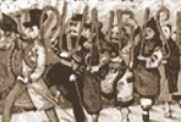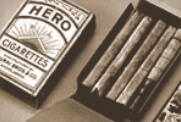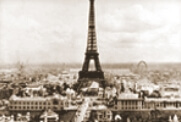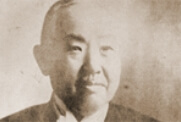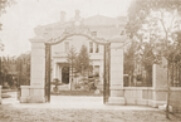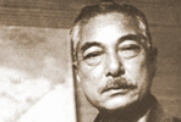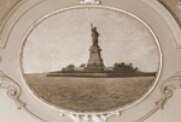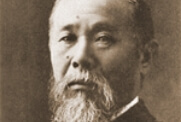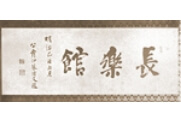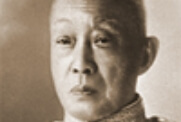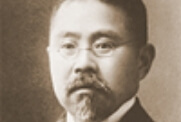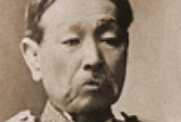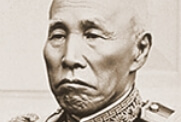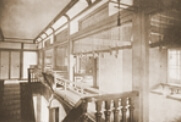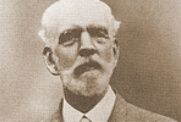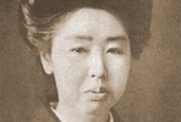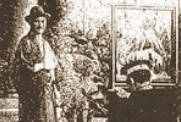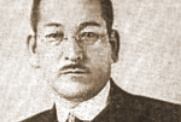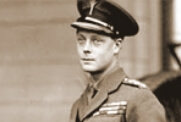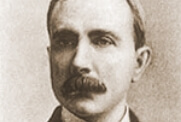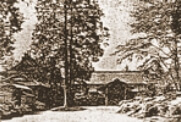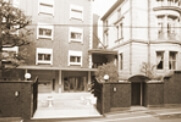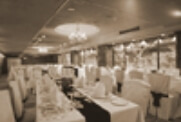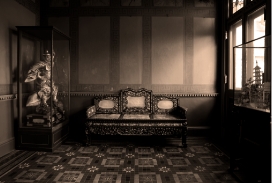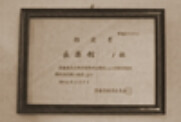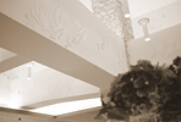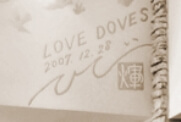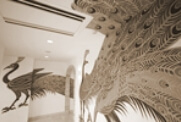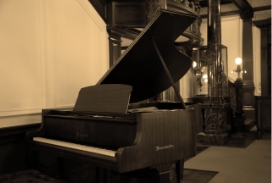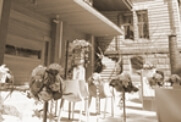HistorHistory
Chourakukan was called the "King of Tobacco" in 1909.
By Kichibei Murai, a businessman
For entertaining distinguished guests at home and abroad
It was built as a guest house.
More than 100 years have passed since then.
Hirobumi Ito, Shigenobu Okuma and Aritomo Yamagata,
The people who colored the Meiji era and others,
How many guests have we welcomed so far?
In 1986, it included not only the building but also many furniture and furnishings,
The building has been designated as a Tangible Cultural Property of Kyoto City.
When guests have tea at Chorakukan,
Or when dining at a restaurant,
The table may be a designated cultural asset.
That chair was once used by Saionji Kinmochi to smolder his cigarettes.
It may be.
A guest house for entertaining distinguished guests."
June 2019 marks the 110th anniversary of the completion of Choraku-kan.
we remain committed to offering our guests a "long-lasting enjoyment" consistent with the
meaning of its name.
-
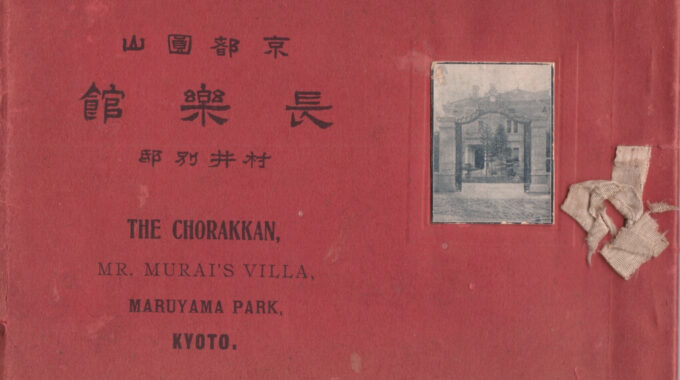
Kyoto Enzan Chourakukan Murai Villa
-
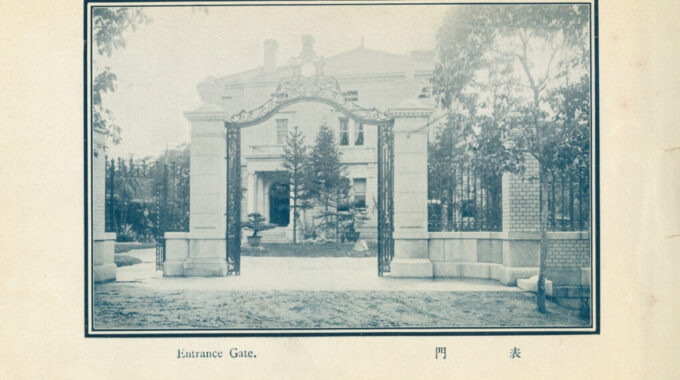
Chourakukan front gate (at the time of completion)
-
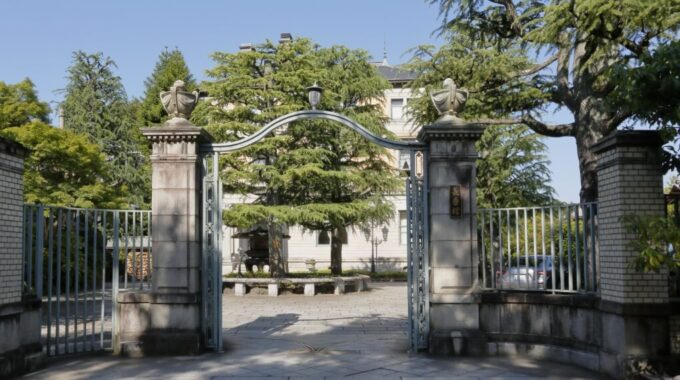
Chourakukan front gate (present)
-
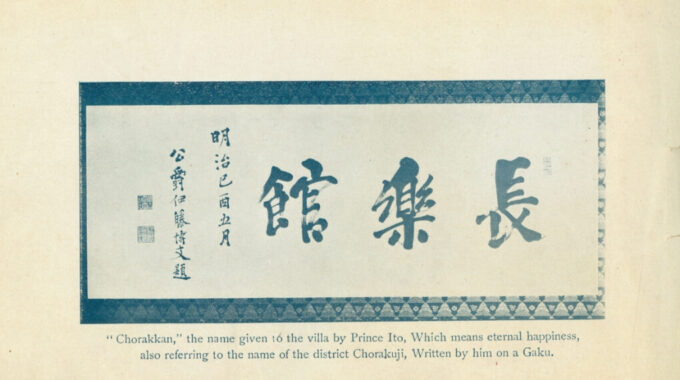
Tatami-matted plaque with the title "Hirobumi Ito, Duke of Tokyo
-
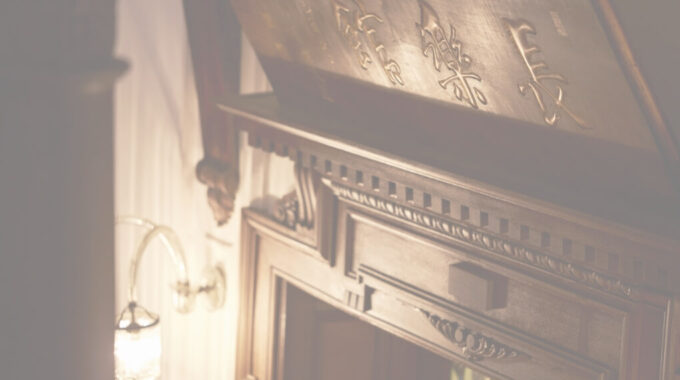
Tatami-matted plaque with the title "Duke Hirobumi Ito" (present)
| HistorHistory | Chronological Table of Japanese History |
|---|---|
|
1891 Kichibe Murai introduces Japan's first double-cut paper cigarette, "SUNRISE". |
The first House of Representatives election is held. |
|
1894 Kichibe Murai introduces "HERO," a double-cut paper cigarette. |
The Sino-Japanese War occurs (~1895). Mutsu Munemitsu successfully eliminated extraterritorial jurisdiction. |
|
1900 "Hero" won a gold medal at the Paris Exposition. It was a cigarette that set the world's standard. |
The Security Police Law is issued. Crackdown on social and labor movements. Socialists such as Koutoku Akisui were strictly punished. |
|
1904 Construction begins on Chorakukan as a villa for Kichibei Murai. |
The Russo-Japanese War begins (~1905). |
|
1905 Chourakukan, construction temporarily halted due to the war (Russo-Japanese War). |
The Treaty of Portsmouth is signed. |
|
1907 Chourakukan, building was completed in June. |
The Franco-Japanese and Russo-Japanese treaties are concluded. |
|
1908 Takagi Haisui |
The U.S.-Japan Gentlemen's Agreement is signed. |
|
1909 Chourakukan, completed in May. |
The Kokugikan (Japanese performing arts hall) is opened in Ryogoku, Tokyo. |
|
1909 October: Baron Ryuichi Kuki stayed with us. |
Hirobumi Ito in Harbin, Manchuria, |
|
1910 April 26th: Their Imperial Highnesses Prince Tao and Prince Puyong of the Qing Dynasty stayed at the hotel |
Korea is annexed. |
|
1914 Chourakukan 3rd floor Japanese-style room remodeling |
World War I broke out, |
|
1915 November: On the occasion of the Emperor Taisho's Grand Ceremony, |
He issued 21 articles of demand to China, |
|
1916 January 1: Mrs. Unoko died. |
|
|
1916 Remarried to Kaoruko (Yamachahana bureau), sister of Viscount Hinonishi Shihiro |
The Soviet regime is established in Russia. |
|
1918 July 1: British envoy, H.E. Mr. Connaught, stayed at the hotel. |
Rice riots occur in Toyama. |
|
1925 Chourakukan, facilities, etc. were partially renovated. |
The Paris Peace Conference opens. |
|
1920 May 7: Mr. and Mrs. Vanderlip, a British banker, and their daughter stayed with us. |
Joined the League of Nations and became a permanent member. |
|
1922 His Royal Highness the Prince of Wales, visited us on the occasion of his state visited to Japan. |
|
|
1925 Taisho 14 Mr. Rockefeller of the U.S.A. visited and stayed at the hotel. |
The Regular Election Law is passed. |
|
1927 Chourakukan has been sold. Murai Bank has closed. |
|
|
1928 The main residence has been moved from Tokyo as "Daishoin" of Hieizan Enryakuji Temple. |
|
|
1954 Tomizo Dote purchases the land and building of Chorakukan. |
|
|
1965 Construction and opening of a ladies hotel/restaurant on land adjacent to Chourakukan. |
Restoration of diplomatic relations with the Republic of Korea. |
|
1968 Opened a coffee shop in the main building. |
|
|
1986 Chourakukan, registered as a Tangible Cultural Property of Kyoto City. |
|
|
2008 Renewal of the hotel building.
French restaurant "Le Chene" opens in the main building and banquet room "Coral" opens in the new building. |
The G8 Hokkaido Toyako Summit is held. |
|
2009 Chourakukan celebrated its 100th anniversary. |
The jury system begins. |
|
2011 A piano (Beisendorfer 1955) was installed in the lobby of the main building. |
The Tohoku-Pacific Ocean Earthquake occurs. |
|
2012 Gardener Yasuo Kitayama created a terrace on the south side of Coral. |
Tokyo Sky Tree opens. |
|
2013 Recognized by Kyoto City as "Buildings and Gardens that Adorn Kyoto. |
2020 Summer Olympics and Paralympics. |
|
2016 Renewal of Chourakukan. |
Olympic Games held in Rio de Janeiro. |
|
2019 Chourakukan 110th anniversary |
The Emperor is replaced, and the name of the era is changed to "2025. |



